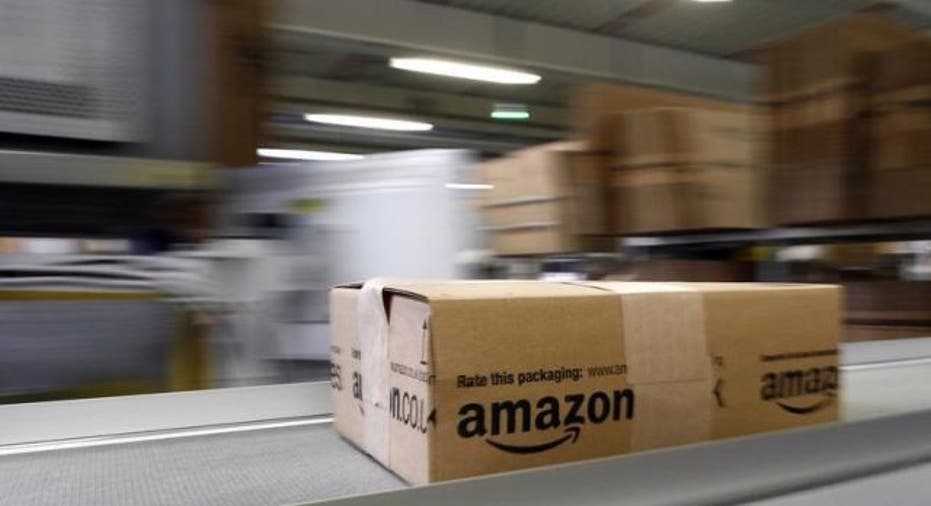In Defense of Amazon’s Competitive Culture

The New York Times’ deep dive into what it’s like to work for Amazon describes the online retailer’s unabashedly competitive meritocracy as something out of a dystopian nightmare. It’s full of anecdotes that bring to mind a brutally combative culture of crazed workaholics that are mercilessly driven 24x7 to deliver results or else.
In an email to employees, CEO Jeff Bezos said the “shockingly callous management practices” depicted in the article don’t describe the Amazon he knows and would not be tolerated at the company. He also said that no company operating that way could survive in such a “highly competitive tech hiring market” and that anyone “would be crazy” to work at such a place.
If you’re wondering which of these contrasting perspectives is the true one, you’re not alone – and you’re not going to get much help from the mainstream media on that front. All the usual left-leaning publications are quick to side with the Times story, which the pro-business folks of course saw as a hit piece.
Strangely enough, I think they’re both true. Let me explain.
Remember when Toyota was dragged through the mud over the sudden acceleration controversy back in 2010? The automaker recalled millions of vehicles, was raked over the coals by Congress and federal regulators and came very close to suffering a brand meltdown.
But months later, after analyzing thousands of complaints and dozens of data recorders, including those from 75 fatal crashes that killed 93 people, the U.S. Department of Transportation and the NHTSA concluded that only one of those incidents was caused by a problem with the vehicle.
While Toyota did acknowledge two known flaws – “sticky” accelerator pedals and poorly positioned floor mats – the computer controlled throttle system turned up clean. It seems that nearly all the drivers had mistakenly floored the accelerator pedal when they meant to jam on the brakes.
When that report came out, the Wall Street Journal headline read Early Tests Pin Toyota Accidents on Drivers while the New York Times went with Toyota Acknowledges 2 Vehicle Flaws. Two very different angles on the same set of facts. Given what Toyota’s brand had been through, in my opinion, the Journal covered it appropriately. The Times, not so much.
That’s exactly what’s going on with the Amazon story. The ecommerce giant proudly acknowledges a culture that thrives on constant innovation, setting the highest standards, taking ownership, working hard, doing more with less and delivering results. Its Leadership Principles are documented on the company website.
Its version of survival of the fittest – what it calls “purposeful Darwinism” – appears to be working extraordinarily well. Frankly, Amazon’s culture is not all that much different from those of Intel, Apple and less famous tech companies I’ve worked with over the decades.They’re not for everyone, but they’re all great proving grounds for talented, driven people that aren’t overly concerned with work-life balance.
Besides, in a 20 year-old company with 150,000 current and who knows how many former employees, I’m not the least bit surprised that the Times was able to find enough stories to support the position that Amazon is a brutally tough place to work that breaks down and burns out a lot of people.
Don’t get me wrong; I’m no Amazon fanboy. In the past I’ve been openly critical of its strong-arm negotiating tactics with book publishers and its low profit-margin business model. I think that the only reason the company has managed to survive and thrive over the years is because of its uber-competitive culture that constantly challenges employees to do more with less.
And while I make no apologies for some of the more inhumane anecdotes portrayed in the Times article, that doesn’t mean that sort of behavior is institutionalized – supported by the company’s policies and leadership team. Every corporation has outliers and I can definitely see how some people might take things too far.
In any case, I am a believer in Amazon’s leadership principles. If the company provides employees with an opportunity to push themselves harder and farther than they ever thought possible, the long-term benefit of that experience is priceless. Besides, it’s a free country. Nobody is forcing all those people to work there.
According to the piece, a common saying around the company’s Seattle headquarters is, “Amazon is where overachievers go to feel bad about themselves.” While I’m sure the Times interpreted that as negative, I don’t see it that way.
It brings to mind something Mark McCormack wrote in What They Don’t Teach You at Harvard Business School, that a key characteristic of all superstars is their “profound sense of dissatisfaction with their own accomplishments.” Every great CEO I’ve ever known possessed that quality. Like him or not, so does Bezos.



















